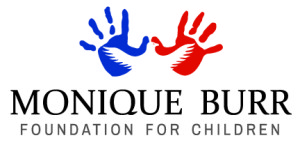The following article was contributed by Ellen Rian, National Outreach Manager at The Monique Burr Foundation for Children.
What You Don’t Know May Hurt Your Students. Learn how to protect your students from abuse and bullying with 360° prevention Webinar – Available on Demand
As Catholic school teachers and administrators, you are keenly aware of the disclosures of clergy abuse impacting our church today. If parents are not already asking you, they soon will be – what are you doing to protect children and prevent child sexual abuse? You are also aware of the demands on teachers, class time, and the importance of quality, evidence-based programming that is easy to deliver and impactful. In the competitive parochial/private education arena, administrators need to be prepared with an educationally sound answer to that question.
Child victimization – in all forms, not just sexual abuse, happens across all demographics, in all cultures, and to children from all types of families. The statistics will make you pause, they may even shock you. In fact, 1 in 4 students will experience some type of trauma or victimization before they reach the age of 16. What is worse, many experts believe those statistics are low because abuse, especially sexual abuse, is under-reported. If you do not know someone personally who has had to bear the burden of being abused you are a rare individual.
During this webinar, I describe how the Archdiocese of Saint Paul & Minneapolis partnered with The Monique Burr Foundation (MBF) to bring comprehensive, evidence-based prevention education to our Catholic schools and faith formation programs.
I detail the 18-month curricula study process conducted, and the clear objectives set by best practices on how to evaluate a personal safety curriculum. It was during that time that I went from sitting on an ad-hoc committee, to joining the Office for the Protection of Youth (OPCY), administering the pilot, and subsequent curriculum delivery. We also had a practical objective, in that the curriculum could easily be implemented in both a classroom setting by trained educators, or a faith formation program that potentially would be using volunteers. In addition, our various sites needed flexible lesson delivery, not a curriculum totally dependent on the Internet or requiring out-of-reach technology. A final, overarching objective was that it not conflict, in any way, with the Catholic faith. MBF Child Safety Matters® met all of those objectives.
After 20 years of teaching in Catholic schools and then serving as the Curriculum and Training Specialist at the Archdiocese, this August I joined The Monique Burr Foundation for Children as the National Outreach Manager. I felt so strongly after learning about the impact that victimization has on children, combined with the continuous stream of stories in the news concerning abuse, that God was calling me to this work.
I’m not suggesting that our curriculum is the right fit for every school, but as an educator and administrator you want to be sure that what is being implemented in your classrooms is effective. MBF just completed a two-year research study conducted by David Finkelhor, Ph.D., Director of the Crimes Against Children Research Center and MBF Child Safety Matters® is now the first comprehensive, evidence-based program available to protect children from bullying, cyberbullying, all types of child abuse, and digital dangers. This randomized, controlled trial demonstrated that students who received our program had a significant increase in their knowledge of potentially risky or unsafe situations. MBF is currently conducting a 6-month follow up to assess those same students’ retention. You can access the study summary and full report here.
I urge you to watch the webinar, and then ask yourself – is the curriculum we’re using effective? Do my teachers feel comfortable and confident in its implementation? Does it sufficiently educate children for prevention from all types of abuse? Is it current and fun for our students? And lastly, will I be able to confidently answer a concerned parent’s question about what my school is doing to keep their child safe?
